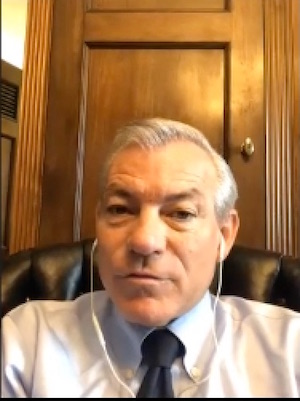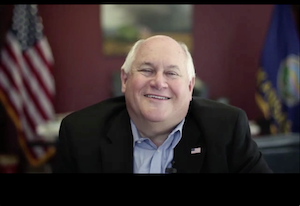Addressing the 2020 NAPA D.C. Fly-In Forum this week, two members of the House Ways & Means Committee shared their thoughts on how the economic stress caused by the pandemic has shined a spotlight on the need to better align retirement savings incentives.
“I actually believe, long term, the biggest issue for the United States is retirement security,” noted Rep. David Schweikert (R-AZ). “If you look at the U.S. demographics, we have so many of our Baby Boom population moving into their retirement years with not enough resources. Now that we’re in the pandemic here, with the stock market, the ability to round out those last couple of years of work may now be disrupted,” he explained.
“It’s an intense fear that I have that we have a big block of our population moving into its retirement benefit years and there’s great difficulty—you see it in multiemployer pension plans, now we're seeing it in a number of single employer plans, let alone the financial stress that’s laying in Social Security and Medicare,” the Ways & Means Committee member added. 
As for how he thinks the issue can be solved and whether it can be done in an employer-sponsored way, Schweikert (at right) suggested that it’s going to have to be layer by layer. “The employer-sponsored model is huge and we need to expand it. And we need to actually put in more incentives, particularly even for very small employers to be able to do more of that,” he noted.
Schweikert suggested that the hope has been with technology, resulting in the cost of offering these plans coming down and making it simpler to offer a plan. He pointed to further incentivizing auto-enrollment features for small employers as another possibility.
Schweikert acknowledged that some of these retirement policy incentives are expensive from a tax-collection standpoint, but emphasized that providing the incentives today will reap rewards in the future, not only with respect to capital stock, but with individuals and families having a nest egg in the future. “I’m hoping now with the amount of economic stress and the number of Americans thinking, ‘Oh god, what if I had to retire this coming year, what does my world look like?’ that stress helps us come together and provide these incentives,” he observed.
When asked about the possibility of DC plan funding relief in a forthcoming stimulus package, the congressman noted that the idea has been bouncing around, but believes the impetus will have to come from the Senate.
Rep. Ron Estes (R-KS), who also serves on the Ways & Means Committee, was more optimistic in his forecast for the possibility of DC plan funding relief. “I think there’s strong bipartisan agreement—we’ve got to recognize some of the impact that [COVID-19] has had on workers and on employers in terms of the programs and issues that are out there. So, I think there is strong support, but obviously, when you pull together a bill like that, things are being pulled in all sort of different directions that are trying to come together,” he explained.
When asked about his thoughts on the prospect for a mandate for employers to offer a retirement plan, similar to Ways & Means Committee Chairman Richard Neal’s (D-MA) bill, Estes (at left) suggested that there is broad support for a “SECURE Act 2.0” that enhances existing retirement plans, but wasn’t sure whether there’s as much support for a mandate.
 “I looked at this issue when I was state treasurer in Kansas, and in analyzing it and talking with employers, there were a lot of employers that view their 401(k) offering as a competitive advantage to hiring employees,” Estes explained, noting that they weren’t as supportive of a government mandate.
“I looked at this issue when I was state treasurer in Kansas, and in analyzing it and talking with employers, there were a lot of employers that view their 401(k) offering as a competitive advantage to hiring employees,” Estes explained, noting that they weren’t as supportive of a government mandate.
“I’m a big advocate of making the rules as simple as possible so that we can encourage employers to sign up to offer a plan and to make those plans portable,” he noted, adding that setting up a plan “shouldn’t cost an employer an arm and a leg.”
Estes also expressed support for auto-enrollment with an opt-out provision—which, he noted, is something you might not expect coming from a conservative Republican. He explained that employees are probably not as focused on signing up for their retirement plan as they are for filling out their tax and health care forms, so setting up with auto-enrollment make sense until they “get their feet on the ground.”
Estes also noted that he’s an advocate of allowing companies to provide matches for student loan repayments.

